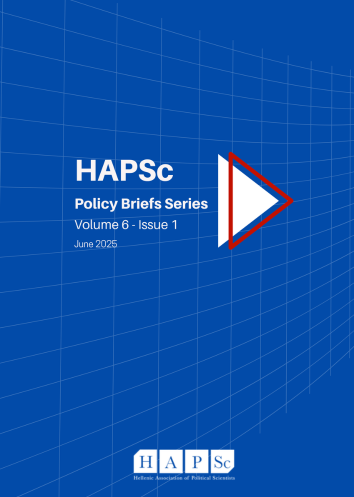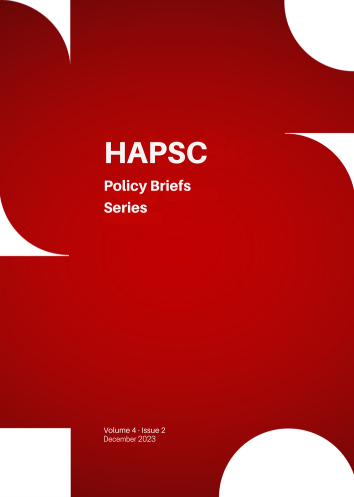Evolving Social Vulnerability in Greece's Turbulent Landscape: Challenges and Policy Pathways
Abstract
This policy brief examines the evolution of social vulnerability in Greece from the 2008 crisis to the post-pandemic recovery and why recent macroeconomic improvements have not yet translated into broad social gains. Drawing on composite-index evidence, it identifies a two-phase trajectory: sharp deterioration across education, employment, healthcare and living standards during 2008–2016, followed by gradual improvement from 2017–2022 amid falling unemployment, yet with persistent risks for NEETs and workers in precarious jobs. The analysis links austerity era, health-system constraints, income losses and housing pressures to unmet needs and reinforced inequalities and shows how these dynamics erode trust, weaken social cohesion and complicated policy delivery. Building on the brief’s findings, it outlines actionable pathways: strengthening the social safety net (minimum income, targeted assistance), restoring and rebalancing public health expenditure with an emphasis on primary care and prevention, tackling skills mismatches through upgraded VET, apprenticeships and lifelong learning, improving job quality and female labour-force participation and expanding affordable housing supports. It also recommends governance measures, greater transparency, accountability and selective decentralization, to rebuild confidence and ensure that growth becomes socially inclusive. The brief argues that only a coordinated package spanning welfare, health, labour-market modernization and place-based social policies can durably reduce vulnerability and prevent a relapse into “permacrisis”.
Article Details
- Come citare
-
Melidis, M., Tzagkarakis, S. I., & Papadakis, N. (2025). Evolving Social Vulnerability in Greece’s Turbulent Landscape: Challenges and Policy Pathways. HAPSc Policy Briefs Series, 6(1), 38–45. https://doi.org/10.12681/hapscpbs.43151
- Sezione
- Articles

TQuesto lavoro è fornito con la licenza Creative Commons Attribuzione 4.0 Internazionale.
Authors retain copyright and grant the journal right of first publication with the work simultaneously licensed under a Creative Commons Attribution License that allows others to share the work with an acknowledgement of the work's authorship and initial publication in this journal.



